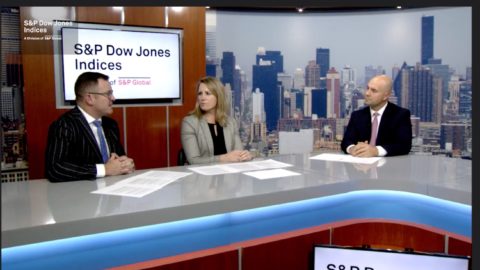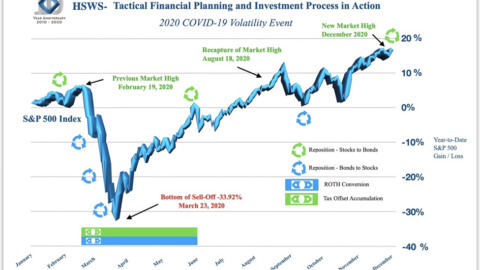The Denver Real Estate Market has Gotten Expensive…right?
The math behind real estate (for most people)
By: Allison Schmidt, Financial Advisor, CFP®, CPA

I love math. Yes, I am a CPA and yes, that is an incredibly nerdy thing to say, but it’s true. I know a lot of my friends at least smiled when they read that first line. (I have ruined at least one fun conversation over cocktails with this love of math.) I love that you can look at a situation, and at first it can look one way, but after you throw the variables into a spreadsheet, what you thought you “knew” isn’t the reality. As you can imagine, with this love that I have…I use a lot of spreadsheets to make sense of things in both my personal and most certainly my professional life. My favorite spreadsheet right now is around real estate. This is a truly interesting situation that is difficult for most to understand…well without the math.
Let’s play a game…which house costs more to an average homebuyer*…
House 1: Purchase Price: $500,000, Downpayment: 20%, 30-year fixed rate 4.94% (rate from November of 2018^).
OR
House 2: Purchase Price: $600,000, Downpayment: 20%, 30-year fixed rate: 2.73% (rate from today, 2.23.21^).
Answer: House #1. Even though the purchase price is $100,000 less, because of the simple difference between mortgage rates, it will cost you more over the life of the loan.
The math…over 30 years House #1 will cost $867,880 ($2,133 principal & interest monthly mortgage payments over 30 years plus the downpayment) vs House #2 will cost $823,440 ($1,954 principal & interest monthly mortgages payments over 30 years plus the downpayment). Math is amazing.

So, what spurred the spreadsheet…we’ve had a lot of conversations with people who are looking to purchase a new home, a commercial space, or a rental property, and we hear a lot of people reference how much more expensive Denver real estate is now compared to previous years. That comment is typically followed by a comment about how the prices can’t stay this high and that they’re tempted to wait until “things cool down”.
Some perspective…from strictly a sticker price perspective, we have come pretty far, pretty fast in terms of the purchase price for homes. The average Denver home value according to Zillow in 2017, just 4 years ago, was $463k, and today, in 2021, it’s gone up to $587k, nearly 27%. That’s math too, and it’s massive, but the purchase price of a home is not really what YOU pay for it, it’s just a piece of the calculation.
So, let’s assume these real estate purchasers and investors are correct and a drop in real estate prices is looming. A 30-year mortgage rate at less than 3% is unlikely to continue forever, and we will ultimately see a rise in rates. So, my question is how far would that home price have to fall to make up for just a 1% increase in interest rates…back to the math!
So, let’s use the $600k house example. In order to keep that same principal and interest monthly mortgage payment of $1,954, that home price would have to drop by $69k if the mortgage rate increased by just 1%! It would have to drop by $137,500, if the rate moved back to November 2018 levels of 4.94% (still well below the historic average). That cool down would be historic and would be far worse for Denver than the housing crisis of 2007-2008.

Of course it is possible, anything is possible, but real estate investors who are waiting for the bubble to burst or for things to cool down, may want to consider the ole spreadsheet. Even with a real estate price decline you could still pay more for the real estate over time, just depends on the rates.
Now, if you purchase homes for cash, this certainly doesn’t apply and you may be able to find better deals in the future…I’m not sure, I’m not a real estate expert. I’m just a nerdy CPA who loves spreadsheets and wonders if maybe real estate in Denver is not quite as expensive as it may seem.
*Average homebuyer is defined as someone with excellent credit who purchases a home utilizing a conventional loan, with 80% loan-to-value.
^30 Year Mortgage Rate (I:US30YMR) ycharts.com
Securities offered through LPL Financial, Member FINRA/SIPC.
Investment advice offered through Higgins & Schmidt Wealth Strategies, a registered investment advisor and separate entity from LPL Financial.








